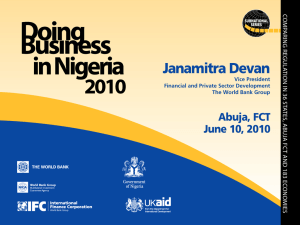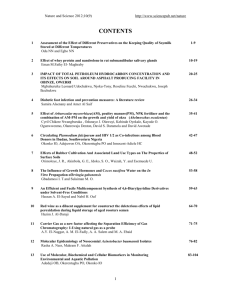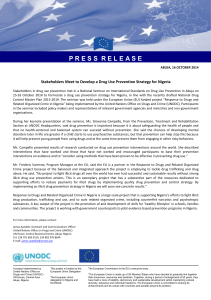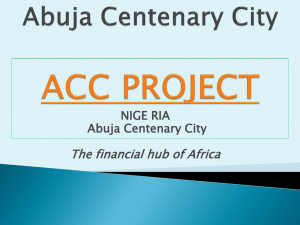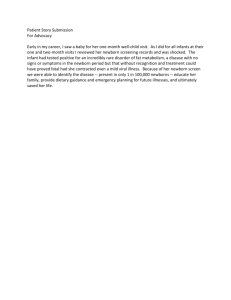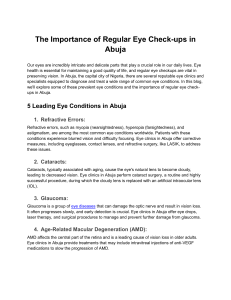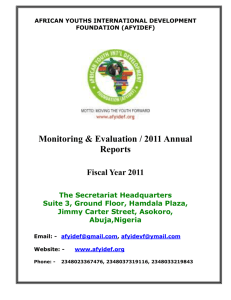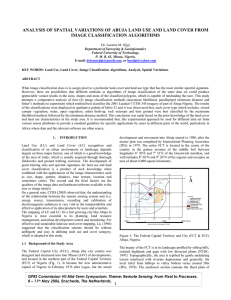press releases - MamaYe Nigeria
advertisement
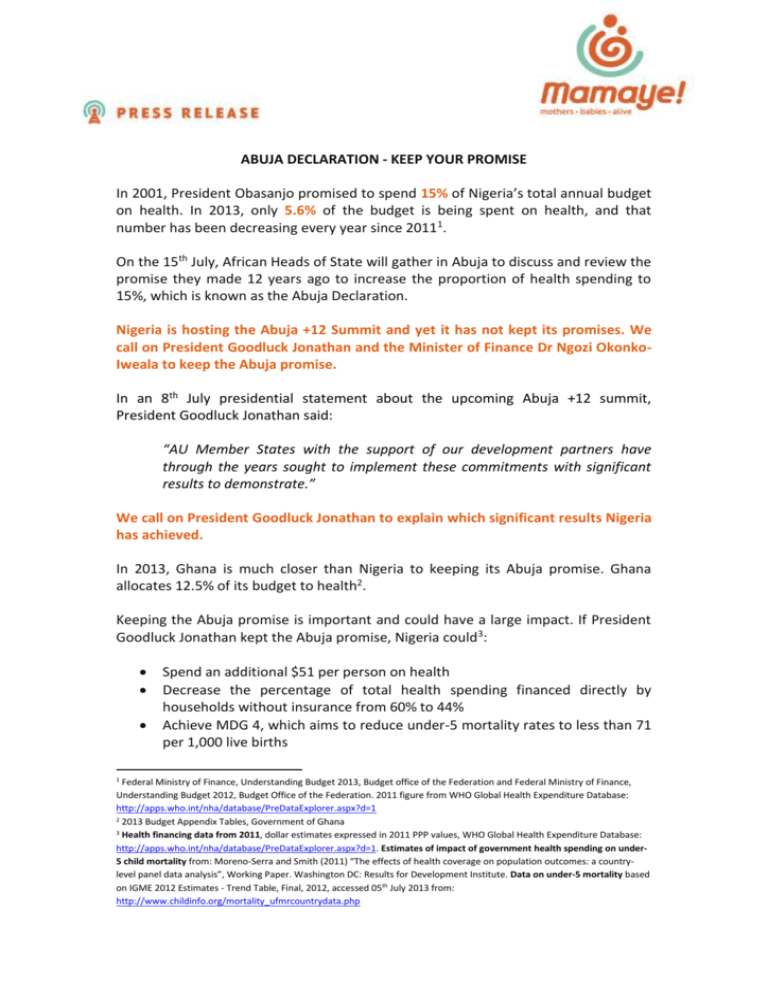
ABUJA DECLARATION - KEEP YOUR PROMISE In 2001, President Obasanjo promised to spend 15% of Nigeria’s total annual budget on health. In 2013, only 5.6% of the budget is being spent on health, and that number has been decreasing every year since 20111. On the 15th July, African Heads of State will gather in Abuja to discuss and review the promise they made 12 years ago to increase the proportion of health spending to 15%, which is known as the Abuja Declaration. Nigeria is hosting the Abuja +12 Summit and yet it has not kept its promises. We call on President Goodluck Jonathan and the Minister of Finance Dr Ngozi OkonkoIweala to keep the Abuja promise. In an 8th July presidential statement about the upcoming Abuja +12 summit, President Goodluck Jonathan said: “AU Member States with the support of our development partners have through the years sought to implement these commitments with significant results to demonstrate.” We call on President Goodluck Jonathan to explain which significant results Nigeria has achieved. In 2013, Ghana is much closer than Nigeria to keeping its Abuja promise. Ghana allocates 12.5% of its budget to health2. Keeping the Abuja promise is important and could have a large impact. If President Goodluck Jonathan kept the Abuja promise, Nigeria could3: 1 Spend an additional $51 per person on health Decrease the percentage of total health spending financed directly by households without insurance from 60% to 44% Achieve MDG 4, which aims to reduce under-5 mortality rates to less than 71 per 1,000 live births Federal Ministry of Finance, Understanding Budget 2013, Budget office of the Federation and Federal Ministry of Finance, Understanding Budget 2012, Budget Office of the Federation. 2011 figure from WHO Global Health Expenditure Database: http://apps.who.int/nha/database/PreDataExplorer.aspx?d=1 2 2013 Budget Appendix Tables, Government of Ghana 3 Health financing data from 2011, dollar estimates expressed in 2011 PPP values, WHO Global Health Expenditure Database: http://apps.who.int/nha/database/PreDataExplorer.aspx?d=1. Estimates of impact of government health spending on under5 child mortality from: Moreno-Serra and Smith (2011) “The effects of health coverage on population outcomes: a countrylevel panel data analysis”, Working Paper. Washington DC: Results for Development Institute. Data on under-5 mortality based on IGME 2012 Estimates - Trend Table, Final, 2012, accessed 05th July 2013 from: http://www.childinfo.org/mortality_ufmrcountrydata.php Spending more, and spending more effectively, on health services for Nigeria’s mothers and babies, also has a positive impact on other parts of the economy. According to a recent study by Partnership for Maternal, Newborn and Child Health: “For every dollar spent on key interventions for reproductive, maternal, newborn and child health, about US$ 20 in benefits could be generated through producing healthy children who enjoy better cognitive development, achieve more at school and become healthy, productive adults.” Speaking on behalf of the MamaYe campaign, Dr Tunde Segun said: “Many more mothers and babies could be saved in our country if they had access to quality health services. Somewhere in Nigeria more than 108 women die every day from causes related to pregnancy and childbirth. Too many babies die, we lose 240, 000 newborns each year. This amounts to one newborn death every 2 minutes. It does not have to be this way. Ensuring our health facilities are safe for our mothers and babies requires more funds be allocated to maternal and newborn health, and this in turn will encourage increased use of these facilities.” Find out more on the MamaYe website (www.mamaye.org.ng), a resource centre that provides more information about other Nigeria government commitments, the latest evidence on our maternal and newborn health, as well as suggestions for actions that you can take to help save mothers and babies. Notes to editor For more information please contact Morooph Babaranti Communications Specialist, Evidence for Action m.babaranti@evidence4action.net 07081270316 About MamaYe MamaYe is a campaign initiated by Evidence for Action (E4A), a multi-year programme which aims to improve maternal and newborn survival in sub-Saharan Africa. Funded by the UK Department for International Development, the campaign focuses on using a strategic combination of evidence, advocacy and accountability to save lives in Ghana, Malawi, Nigeria, Ethiopia, Sierra Leone and Tanzania. Social media contacts www.mamaye.org.ng www.twitter.com/mamayenigeria www.facebook.com/mamayenigeria

